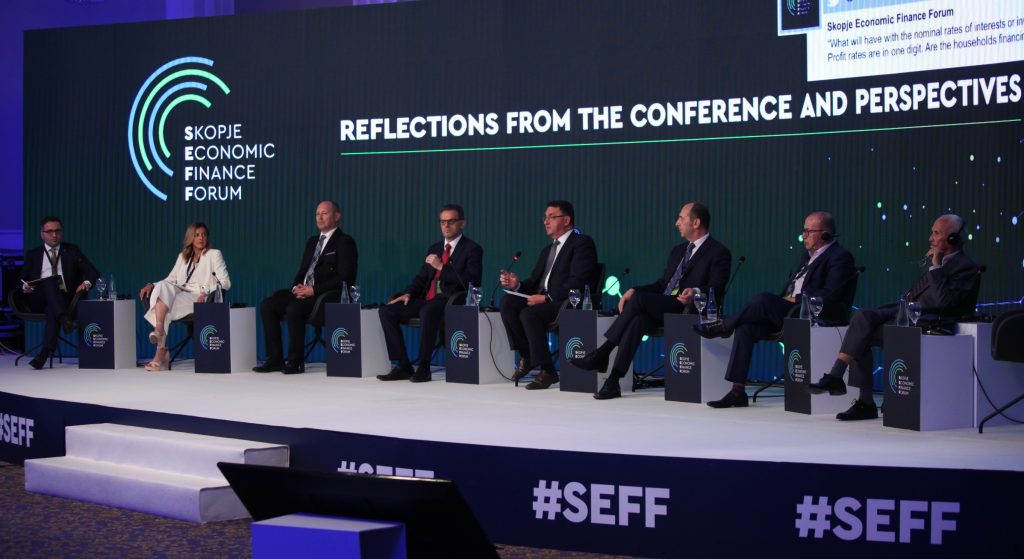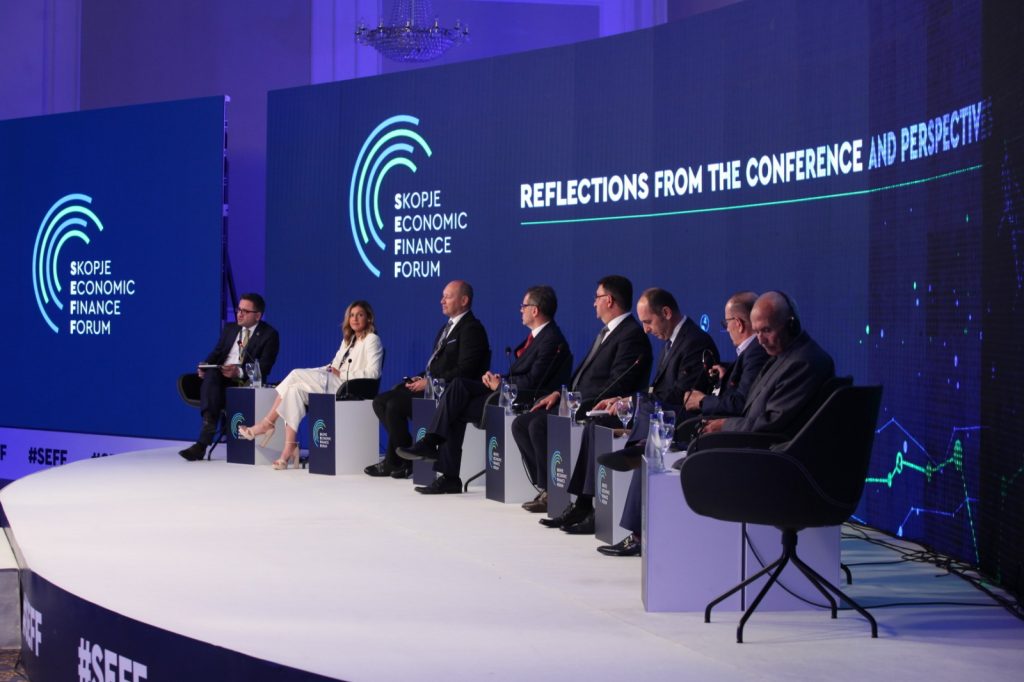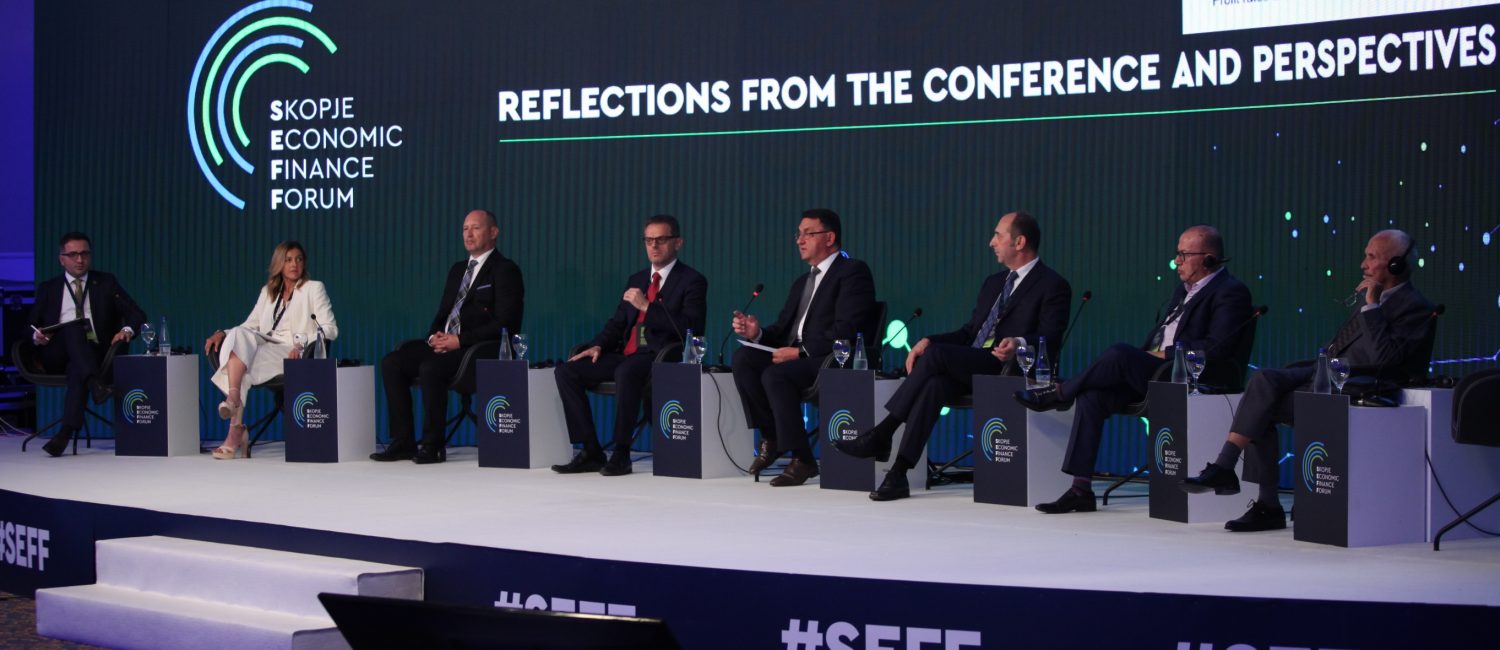31st May 2022, Skopje – The challenge in the short term is to balance the fiscal support to the citizens and the companies and the maintaining of stable level of public debt. Fiscal consolidation process is to be implemented in the medium term, at the same time implementing activities aimed at accelerating the growth through structural reforms and investments in infrastructure, green transition, human capital and digitalization –
the conclusions in brief at the Skopje Economic Finance Forum – SEFF made by the Minister of Finance, Fatmir Besimi, together with the former Ministers of Finance, Xhevdet Hajredini, Taki Fiti, Nikola Popovski, Trajko Slaveski, Zoran Stavreski, Kiril Minoski, Dragan Tevdovski and Nina Angelovska.

Minister Besimi underlined that although the crisis was a real challenge, in addition to the ongoing policies to manage the crisis, one should also look at the long term, towards achieving higher and sustainable long-term growth. This is also envisaged in the Growth Acceleration Plan which, in addition to fiscal consolidation, also envisages an agenda with ambitious infrastructure investments, human capital investments, digitalization and sustainable green energy and green growth.
One of the first Ministers of Finance Hajredini underlined the importance of investing in renewable sources of energy, as well as the necessity to invest in energy capacities, something that has not been invested in for decades due to which the effects of the energy crisis are strongly felt in the country.
Fiti and Minoski pointed out that investments in human capital and education can significantly contribute to improving the structure of the economy. Fiti underlined that we have to generate knowledgeable and skillful people adequate to the labour market demands, at the same time ensuring better use of the existing human resources at all three sectors. Slaveski said we should work on a sustainable economic model, by supporting the export-oriented enterprises, which would yield results.

Popovski and Stavreski talked about inflation, its effects and what is to be undertaken within the fiscal policy. Stavreski pointed out that in times of high inflation, monetary policy tightens. However, taking into account that economic activity slows down at the same time, overall fiscal policy is to be expansionary. Still, what should be taken into account when deciding how much expansionary should it be is the stability of the public debt. Therefore, efficiency savings, wherever possible, is to be strived for.
Former Minister of Finance Tevdovski shared the same opinion, pointing out that targeting the measures and prioritizing the spending are crucial.
Former Minister Angelovska underlined that the country has successfully managed to fight one of the most severe economic crisis, like COVID-19 induced crisis, showing that our economy is resilient and can achieve development.
















